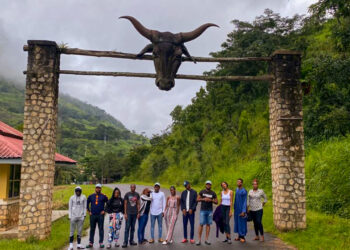Governor Mohammed Umaru Bago of Niger State has unveiled a $100 million livestock offtake agreement with the Saudi Export and Import Bank, a move that could position Nigeria as a key supplier of protein to the Middle East.
Speaking at the FirstBank Agric and Export Expo 2025 in Abuja, Bago disclosed that the deal begins with a $10 million tranche, stressing its potential to transform Nigeria’s non-oil export profile.
“This is incredible. The Saudi government has given us an offtake agreement for $100 million,” he said. “They’ve asked the Nigerian Export and Import Bank (NEXIM) to come in, and we’re starting with the first $10 million.”
Bago described the livestock market in Saudi Arabia and neighboring states as a $2.5 billion annual opportunity, citing rising demand amid geopolitical and environmental disruptions across the Sahel and Sudan.
He emphasised that the partnership goes beyond meat supply, with every animal by-product—skin, hooves, blood, and tripe holding commercial value.
The Niger governor highlighted Lagos State’s role as a critical partner in distribution and consumption, noting Governor Babajide Sanwo-Olu’s commitment to integrated logistics. Lagos, he said, has already committed a N5 billion livestock offtake as part of a wider N500 billion food supply framework.
Bago also pledged 100,000 hectares of farmland to Lagos’ agricultural needs, branding the initiative “Lagos Farm.” He explained that the scheme would support rice, yam, beans, and livestock production where comparative advantage exists.
The collaboration includes modern cold-chain logistics, supported by LNG-powered trucks, to replace live animal transport with frozen meat distribution. “No more transporting live animals to Lagos. We’ll process everything at Mokwa and ship directly,” Bago said.
Governor Sanwo-Olu, in his address, applauded the federal government’s diversification efforts and reaffirmed Lagos’ role as the logistics hub of Nigeria’s agricultural economy. “For the last two years, we’ve seen consistent quarterly growth in non-oil exports. This is the direction we must continue to pursue,” he said.
Sanwo-Olu added that Niger’s vast arable land could unlock national food security if properly harnessed, while Lagos continues to modernise ports, trade infrastructure, and logistics to support exports.





